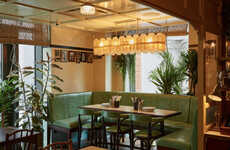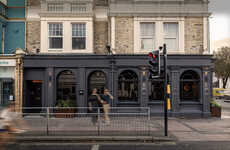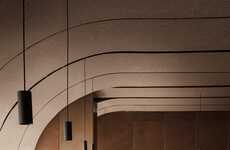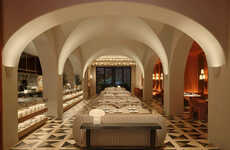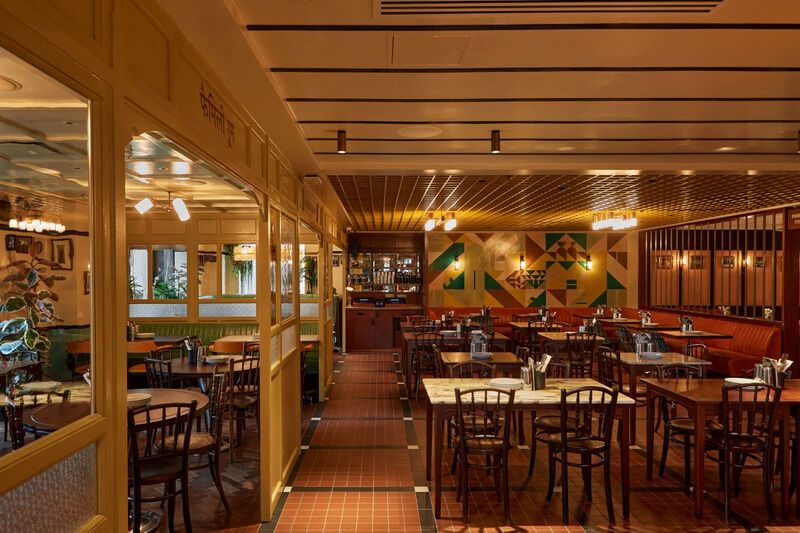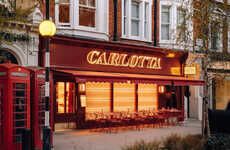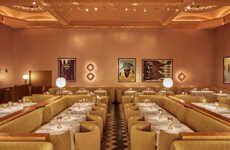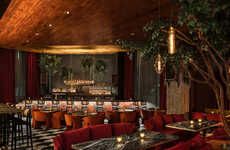
Macaulay Sinclair Helps with Designing Dishoom Canary Wharf
References: macaulaysinclair & dezeen
London opens its doors to another restaurant location with the launch of Dishoom Canary Wharf, building on the popular franchise. To design the venue, co-founders Shamil and Kavi Thakrar work with the architectural studio Macaulay Sinclair. The key design language was to highlight retro furnishings including the use of vintage chairs and lighting fixtures.
Shamil Thakrar explains that "When we create a Dishoom, we always start with a story. We imagined the fictional owner of the restaurant to be a financial fraudster from the 1970s who owns a cafe on Dalal Street, close to the Bombay Stock Exchange. This story gave us an opportunity to experiment with the aesthetic and feeling of the 1970s in Bombay, which, as you can imagine, has a rich history of financial intrigue."
Image Credit: Macaulay Sinclair
Shamil Thakrar explains that "When we create a Dishoom, we always start with a story. We imagined the fictional owner of the restaurant to be a financial fraudster from the 1970s who owns a cafe on Dalal Street, close to the Bombay Stock Exchange. This story gave us an opportunity to experiment with the aesthetic and feeling of the 1970s in Bombay, which, as you can imagine, has a rich history of financial intrigue."
Image Credit: Macaulay Sinclair
Trend Themes
1. Retro Design in Restaurant Industry - Restaurants are embracing the use of vintage chairs and lighting fixtures to create a 1970s aesthetic.
2. Storytelling in Restaurant Branding - Creating a fictional story around the restaurant's owner is becoming a popular trend in restaurant branding.
3. Location-based Restaurant Themes - Restaurants are taking inspiration from the history and culture of their location to create unique themes for their venues.
Industry Implications
1. Hospitality - The hospitality industry could capitalize on the trend of creating unique themes and experiences for restaurants.
2. Design - Design firms can explore the opportunity of incorporating storytelling and vintage elements in their restaurant designs.
3. Tourism - Tourism boards can promote location-based restaurant experiences as part of the local culture and history of a destination.
1.4
Score
Popularity
Activity
Freshness


